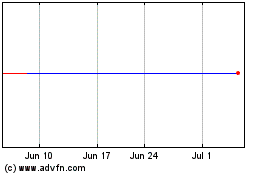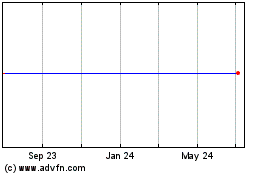By Sam Goldfarb and Rachael King
As Dell Inc. moves toward completing its acquisition of EMC
Corp., the largest proposed technology takeover by market value,
one group may be squeezed to help pay for the deal: EMC's
suppliers.
Dell is one of the technology industry's most aggressive
companies at delaying payments to help finance its operations. It
took approximately 107 days to pay its bills in its most recent
quarter, far more than the 42 average days in accounts payable at
EMC, based on the companies' regulatory filings.
EMC shareholders on Tuesday are expected to approve the $60
billion sale. In acquiring the data storage company, Dell aims to
overcome persistent declines in world-wide computer sales by
creating a one-stop shop for corporate information technology.
Delaying payments could help Dell to quickly pay down some of
the massive debt it has taken on to finance its purchase, even if
would effectively mean replacing debt to creditors with debt to
vendors.
Taking longer to pay EMC's suppliers, along with other efforts
to wring greater efficiency out of EMC's working capital, could
provide around $1 billion of extra cash in the first year or so
after the acquisition, according to oneestimate.
Dell has borrowed around $40 billion and stands to bring in more
than $5 billion through agreements to sell its IT services business
and software divisions.
One EMC supplier said his firm isn't worried: "We don't see any
cause for concern. We have full confidence in the Dell/EMC
merger."
Other EMC suppliers contacted for this article declined to
comment.
Dell, known for its relentless focus on working capital
efficiency, has used this tactic before. Before going private in
Oct. 2013, the Round Rock, Texas, computer maker stretched payment
terms with vendors including Microsoft Corp., which also bought a
$2 billion bond from the company, and Intel Corp., said people
familiar with the matter. The move freed up around $1.2 billion of
cash in the first 15 months after its leveraged buyout, based on an
analysis of SEC filings. Microsoft and Intel declined to
comment.
Dell's total free cash flow in those 15 months amounted to $3.05
billion, as indicated by its regulatory filings. Still, the company
earned enough to retire around $3.6 billion of debt, according to a
presentation to lenders. That set a positive precedent for lenders
that would later make them more open to financing the EMC
acquisition, debt investors say.
Since then, Dell has further increased the time it takes to pay
suppliers, bringing its average days in accounts payable to 107
days in its most recent quarter from 87 days three years earlier,
according to SEC filings.
Dell isn't the only company taking longer to pay its vendors.
Among 3,000 public companies, the average time to pay bills climbed
to 45 days in June 2015 from 35 days in March 2009, according to
the Georgia Institute of Technology's Financial Reporting &
Analysis Lab, which researches corporate financial filings.
Many tech firms now stretch payment terms. But Dell stands out
among rivals such as HP Inc., which in its most recent quarter took
around 88 days to pay suppliers; Apple Inc., which averaged 74
days; and Hewlett Packard Enterprise Co., which averaged 52 days,
an analysis of SEC filings revealed.
Increasingly, companies are using their supply chains not just
to obtain goods but to "fund the organization and to fund the
growth opportunities, " said Dale Rogers, professor of logistics
and supply chain management at W.P. Carey School of Business at
Arizona State University.
Still, extending payment terms can have drawbacks. Many
suppliers pass along to their customers the interest rate they pay
when they sell their invoices to third-party financial companies to
get faster access to cash. That can be as low as 2% for suppliers
to large companies like Dell, according to supply chain experts.
But the cost will go up if benchmark interest rates rise, forcing
Dell to take a direct hit to its profit or pay its suppliers more
quickly, which would also diminish its cash flow.
Another problem is specific to companies like Dell with flat to
declining revenues. In good times, taking less time to collect from
customers and hold inventory than to pay suppliers amplifies the
impact of rising revenue.
A company's liabilities rise as it sells more goods, and
increasing any liability, whether debt to creditors or debt to
vendors, leads directly to more cash on the balance sheet. The
opposite is true in lean times, as its liabilities shrink with
fewer goods sold.
That was evident in last fiscal year as its revenues declined by
$3.2 billion and its accounts payable dropped by $374 million.
"Growth in free cash flow from taking longer to pay your vendors
is not real growth," said Charles Mulford, a professor of
accounting at Georgia Institute of Technology's Scheller College of
Business. As actual growth slows, "all these metrics that worked in
their favor, especially the accounts payable, starts to work
against them," he added.
Write to Sam Goldfarb at sam.goldfarb@wsj.com and Rachael King
at rachael.king@wsj.com
(END) Dow Jones Newswires
July 19, 2016 02:48 ET (06:48 GMT)
Copyright (c) 2016 Dow Jones & Company, Inc.
Global X Funds (NYSE:EMC)
Historical Stock Chart
From Mar 2024 to Apr 2024

Global X Funds (NYSE:EMC)
Historical Stock Chart
From Apr 2023 to Apr 2024
